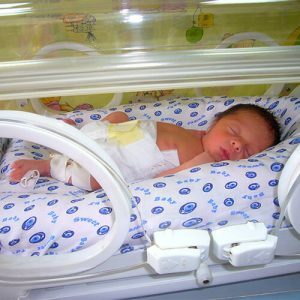13th Week of Pregnancy: What Happens?
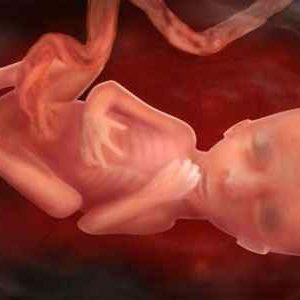
This is the end of the first trimester of pregnancy.The kid grew to the size of a small peach, and my mother began to feel much better.Passed morning sickness, constant drowsiness and emotional tension associated with the fear of losing a child.
Important: at the 13th week of pregnancy, a woman can still have time to undergo first prenatal screening - a survey necessary to assess the condition of the fetus and identify the risk of genetic diseases.
Table of contents: What happens to the baby at the 13th week of pregnancy?Mom's state of health at the 13th week of pregnancy Possible complications 13 weeks of pregnancy Double test: deciphering Nutrition of the future motherWhat happens to the baby at the 13th week of pregnancy?
The fetus is still very small: its growth is only 7-8 cm, and its weight is 20-25 g. The disproportionate parts of the body remain: the head of the crumb is larger than the trunk, and the handles are longer than the legs.However, from the 13th week, the growth rate and weight of the baby will accelerate, and it will grow more, not improve.Also very soon the proportions of the body will return to normal.
On the 13th week the formation of individual traits of the fetus continues, the mimicry develops( the fruit frowns, smacks, pulls the sponge).On the fingers of the baby a unique pattern appears.Skin crumbs are still very thin, but it has already sensitive receptors, through it the vessels are visible.
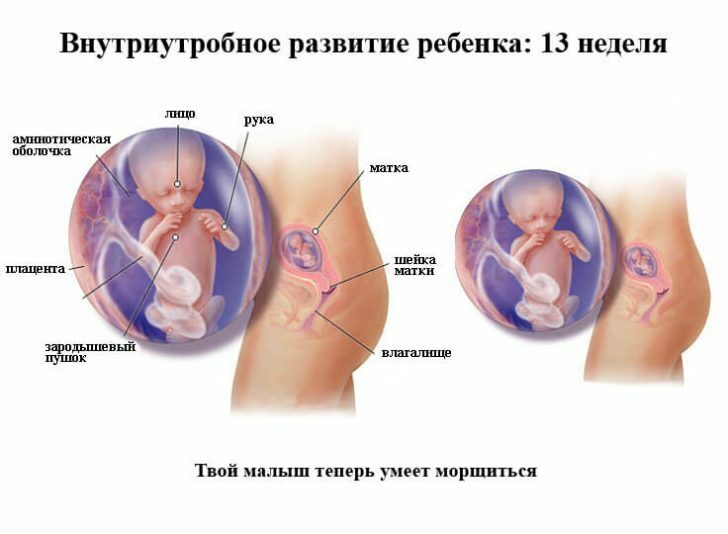
Due to the increase in muscle mass and strengthening of the locomotor system , the baby manages to master more and more new movements of the .He can already somersault, bend, raise his head, wave his arms and legs.Mom still does not feel this and at least a month will not feel.By the way, the first fetal movement can be used as a reference point in calculating the gestational age. In primiparous women, the baby makes itself felt by subtle pushes at about 20 weeks of gestation, and in the re-borns at 17-18 weeks.
The development of the child's sense organs continues. Very soon he will be able to distinguish smells and tastes.The first thing that will try the crumbs inside the mother will be amniotic fluid, the taste qualities and composition of which largely depend on what the woman feeds on.This once again confirms the necessity of eating tasty and healthy food during pregnancy.
At the 13th week in the sexual glands of the fetus, the laying of the sex cells takes place, is about to end the process of forming the external genitalia. More actively begin to function kidneys - they excrete urine, which replenishes the reserves of amniotic fluid.
Mother's well-being at week 13 of pregnancy
Toxicosis disappears completely or noticeably weakens.A woman returns to cheerfulness and a desire to put herself in order, to do something about the house or at work. Of the new sensations - swelling and bleeding gums ( the appearance of these symptoms is also all related to hormones).In addition, it is possible to extract colostrum from enlarged mammary glands.Thus, the breast learns how to make milk.You can not squeeze out the colostrum, because stimulation of the nipples can trigger the release of estrogen into the bloodstream, which stimulates uterine contraction.
At the 13th week of pregnancy, the expectant mother may experience heartburn and constipation of ( if this did not happen earlier).You can cope with them by adjusting your diet, drinking regimen and changing some habits.For example, if you suffer from heartburn, it is advisable for a pregnant woman not to overeat, not to lie down immediately after eating, not to abuse acute and sour food.When constipation, on the contrary, it is useful to move more.As for the diet, then to eliminate problems with bowel movement, it is necessary to drink more, eat lactic products, vegetables, fruits, porridges.
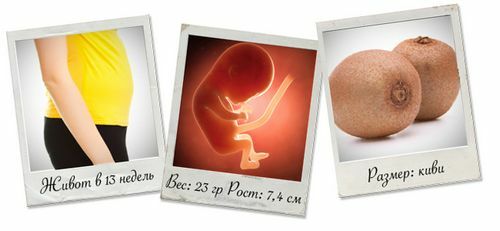
In the appearance of a woman, there are also changes - the waist is slightly rounded, the mammary glands are enlarged even more. may appear as the fragility of nails and hair is a sign that appears as a calcium deficiency .This can also indicate arising problems with the teeth of ( their sensitivity is increased, the development of caries is accelerated).If you have similar problems, you should definitely contact the dentist who will choose a therapeutic toothpaste and give recommendations on the characteristics of oral care during pregnancy.
Possible complications 13 weeks of pregnancy
In general, 13-24 weeks of pregnancy are the most safe and comfortable for both mother and fetus.By the 13th week of , the risk of miscarriage and pregnancy fading is significantly reduced. But there may be other problems - convulsions of the lower limbs and hypertension of the uterus ( manifested as a sharp petrification of the lower abdomen).It is necessary to inform the doctor about these sensations.It may even require special medication.
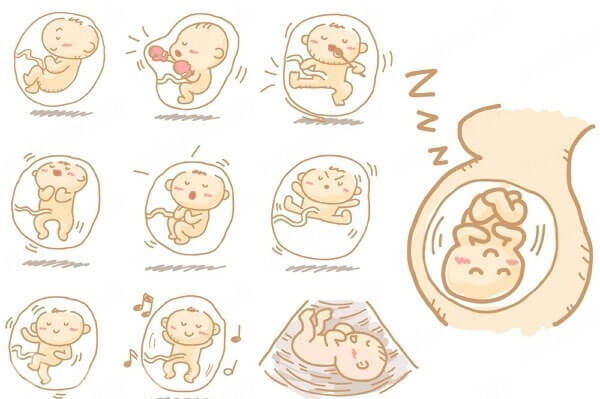
In addition, quite often on the 13th and subsequent weeks of pregnancy thrush develops - the candidiasis of the vagina .However, in the first trimester, treatment of this ailment with antifungal drugs is undesirable, since the effect of most of them on the fetus is either sufficiently unexplored or negative.To reduce discomfort, the expectant mother may be undermined by a weak soda solution or ordinary water with the addition of a few drops of tea tree oil .The course of thrush is largely affected by the nutrition of women, especially the abuse of sweets .In this regard, the future mother needs to reduce the amount of sugar in her diet( it is better to give it up for a while), and also to use fresh lactic acid foods, best prepared independently from starter cultures.Such yogurts and yogurt will promote the normalization of microflora in the body.
Recommended reading:Double test: decoding
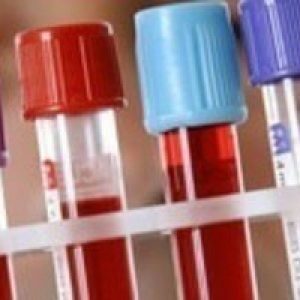 In the first trimester( from 10 to 14 weeks) the expectant mother should undergo the first prenatal screening( or double test).The purpose of this study is to calculate the risk of having a chromosome pathology in the fetus. An accurate diagnosis( for example, Down syndrome) can not be made on this analysis.To diagnose genetic ailments, more serious studies are required, involving the collection of umbilical cord blood or biopsy material from fetal membranes.
In the first trimester( from 10 to 14 weeks) the expectant mother should undergo the first prenatal screening( or double test).The purpose of this study is to calculate the risk of having a chromosome pathology in the fetus. An accurate diagnosis( for example, Down syndrome) can not be made on this analysis.To diagnose genetic ailments, more serious studies are required, involving the collection of umbilical cord blood or biopsy material from fetal membranes.
The dual test involves determining the concentration in the blood of a pregnant woman of a special plasma protein( associated with pregnancy) and free chorionic gonadotropin. Isolation of these substances occurs in all expectant mothers fetal membranes.In some pathologies( Down's syndrome, Edwards syndrome, neural tube nevorazhchenii) the level of determined indicators is significantly different from the norm.However, this can occur in other conditions( for example, the threat of miscarriage, delayed development of the fetus), as well as when taking medications( particularly gestagens, which are prescribed to many pregnant women who have problems with fetal bearing).
The digits obtained in the double test in laboratories are transferred to MoM ( generally accepted coefficient), which shows how many times this indicator differs from the median( median) for this gestation period. Normally, MoM should be between 0.5 and 2.0. Ideally, this coefficient should approach 1. Then the received data is processed by a special program that gives the value of the risk in figures, for example 1: 250.The smaller the digit in the denominator, the greater the risk.That is, the risk of 1: 100, suggests that 1 child with Down's syndrome or other genetic pathology is born in 100 pregnancies with the same screening parameters.When calculating the risk, the age of the mother, the presence of her older children with chromosomal abnormalities must be taken into account.
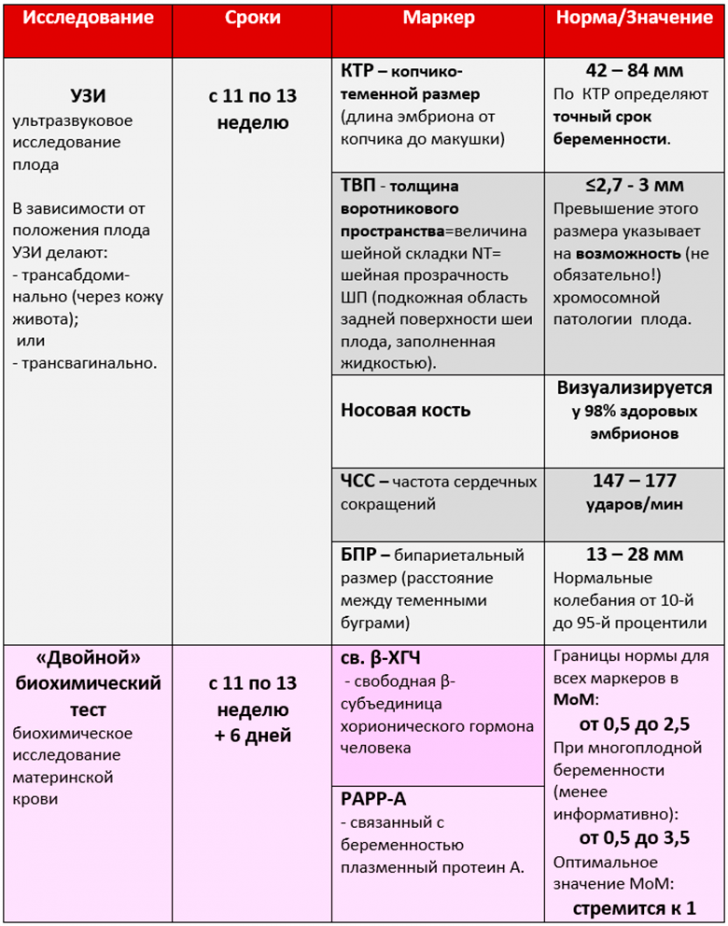
In addition to the dual test, prenatal screening of the first trimester necessarily includes of the fetal ultrasound( determination of the thickness of the collar space, the presence of the nasal bone and the coccyx-parietal size).Prenatal screening is assessed by a gynecologist.If he discovers that the patient has a high risk of giving birth to a sick baby, she directs her to a consultation with a geneticist.
Feeding the future mother
We already discussed the nutrition of a pregnant woman on the pages of our website, in the same article we will look in more detail, with the help of which products can we fill the increased need of the future mother's body in calcium, potassium, magnesium and vitamin B6. By the way, the deficit of these substances can provoke the appearance of seizures and hypertension of the uterus.
It is useful for a pregnant woman to know that:
- Calcium is found in large amounts in hard and soft cheeses, cottage cheese, nuts, beans.In addition, some vegetables are rich in it, for example, cabbage, spinach.
- To provide the body with sufficient quantity of potassium it is possible, using dried fruits, nuts, sea cabbage( it also contains iodine necessary for future mothers), bananas.
- Magnesium is abundant in nuts, buckwheat, barley, oatmeal, wheat, beans.
- Vitamin B6 - all in the same nuts, oily fish( mackerel, sardines), liver, sea buckthorn.
Thus, in the diet of the future mother must necessarily include nuts, cottage cheese, hard cheese, cereal, fatty fish and legumes, if there is no inclination to constipation and bloating.Using these products, the pregnant woman will look good, feel great and reduce the problem of crumbling teeth, brittle nails and seizures.
Recommended to read:Zubkova Olga Sergeevna, medical reviewer, epidemiologist


